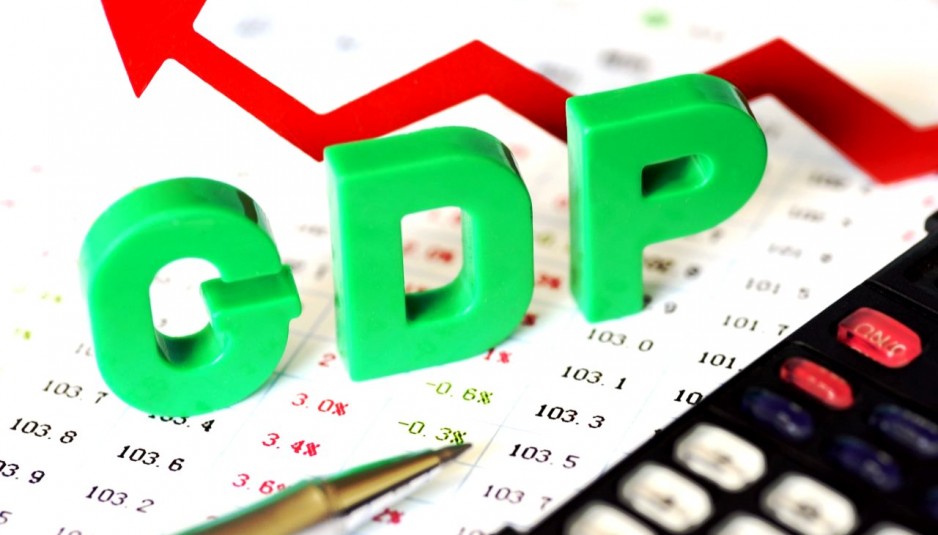There are several technical jargons and acronyms peculiar to many professions. In economics, one of the most common acronyms used is GDP, which stands for Gross Domestic Product.
It is often cited in business news across newspapers, radio, television news, and in reports by governments, central banks, and the business community.
It is widely used to measure the health of national and global economies. According to Tim Callen, the Divisional Chief in overseeing IMF’s Middle East and Central Asia Department,“When GDP is growing, especially if inflation is not a problem, workers and businesses are generally better off than when it is not.”
READ: Nigeria’s unemployment rate jumps to 27.1% as at 2020 Q2
Back story: Recall that Nairametrics had reported, on Monday, that Nigeria’s Gross Domestic Product (GDP) in real terms declined by 6.10% (year-on-year) in Q2 2020, thereby ending the 3-year trend of low but positive real growth rates recorded since the 2016/17 recession.
According to the numbers contained in the GDP report, the performance recorded in Q2 2020 represents a drop of 8.22% points when compared to Q2 2019 (2.12%), and 7.97% points decline when compared to Q1 2020 (1.87%).
Apparently, the significant drop reflects the negative impacts of the disruption caused by the COVID-19 pandemic and crash in oil price on the Nigerian economy.
READ: Crypto: Why Tether became a U.S. dollar replacement for many Chinese
What is GDP?
GDP is the monetary value of final goods and services (i.e those that are bought by the final user), produced in a country in a given period of time; per quarter or year. It counts all the output generated within the borders of a country, and is composed of goods and services produced for sale in the market. It is important to note that it also includes some non-market production like defence or education services provided by the government.
Its twin, Gross National Product (GNP), counts all the output of the residents of a country. For instance, if a German-owned company has a factory in Nigeria, the output of this factory would be included in Nigeria’s GDP, but in Germany’s GNP.
However, not all productive activity is included in GDP. Some of such activities are unpaid work (work performed at home or by volunteers) and black-market. They can’t form part of GDP because they are difficult to quantify or value accurately. For instance, a food vendor that cooks for a customer would contribute to GDP but won’t if he cooks at home for the family.
Also, wear and tear of Capital stock like machines, buildings, which are used in producing the output are not inclusive in GDP. If this depletion of the capital stock, called depreciation, is subtracted from GDP, we get the net domestic product.
How GDP is calculated
- Production approach: This adds the value-added, which is the total sales – the value of intermediate inputs into the production process) at each stage of production. What is an intermediate input? Flour would be an intermediate input and bread the final product, or an architect’s services would be an intermediate input and the building the final product.
- The expenditure approach adds up the value of purchases made by final users. For example, “The consumption of food, televisions, and medical services by households; the investments in machinery by companies; and the purchases of goods and services by the government and foreigners,” Callen added.
- The income approach: This sums the incomes generated by production. According to the expert, this is the compensation paid to employees, rent paid to landowners, interest paid on capital, and profit paid to the company owners.
GDP in a country is usually calculated by national statistical agencies, which is the National Bureau of Statistics in the case of Nigeria. The agency compiles the information from a large number of sources.
In making the calculations, however, most countries follow established international standards. The international standard for measuring GDP is contained in the System of National Accounts, 1993, compiled by the International Monetary Fund, the European Commission, the Organisation for Economic Co-operation and Development, the United Nations, and the World Bank.
Real GDP
Since GDP gives information about the size of the economy and how an economy is performing, one thing people want to know about an economy is whether its total output of goods and services is growing or shrinking.
But because GDP is collected at current, or nominal prices, one cannot compare two periods without making adjustments for inflation.
To determine “real” GDP, its nominal value must be adjusted to take into account price changes to allow us to see whether the value of output has gone up “because more is being produced or simply because prices have increased. A statistical tool called the price deflator is used to adjust GDP from nominal to constant prices.”
The growth rate of real GDP is often used as an indicator of the general health of the economy. In broad terms, an increase in real GDP is interpreted as a sign that the economy is doing well.
Callen said, “When real GDP is growing strongly, employment is likely to be increasing as companies hire more workers for their factories and people have more money in their pockets. But real GDP growth does move in cycles over time.
“Economies are sometimes in periods of boom, and sometimes periods of slow growth or even recession (with the latter sometimes defined as two consecutive quarters in which output declines).
Download the Nairametrics News App
What GDP is not
It is also important to understand what GDP cannot tell us.
GDP is not a measure of the overall standard of living or well-being of a country. Why? Although changes in the output of goods and services per person (GDP per capita) are often used as a measure of whether the average citizen in a country is better or worse off, it does not capture things that may be deemed important to general well-being.
GDP is generally not a good measure of economic development. GDP’s preference for tangible goods also means it is insufficient at capturing the value of technology.
READ: OmiseGO, fastest growing altcoin, up 49% in past 24 hours
Generally, there are five indicators that GDP doesn’t take into account that could help measure national progress more accurately and these include: job quality (underemployment /unemployment), well-being, carbon emissions, inequality, and human health.






















Hey Abiola,
Good ideas and Great Research you have done.
Keep it up.Bode,RICHARD